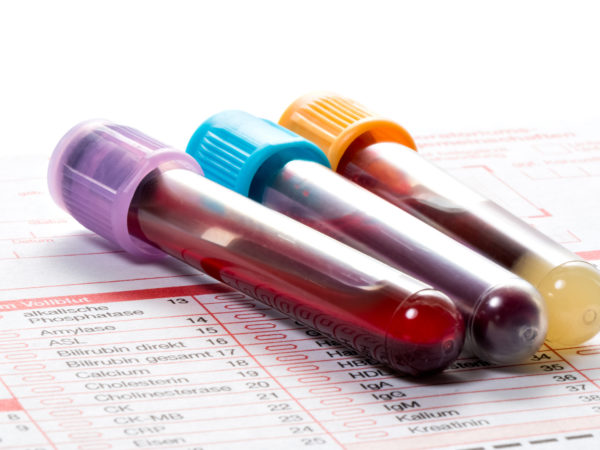Sea Salt And Thyroid Problems?
A friend who uses mostly sea salt in her kitchen has been diagnosed with a very high TSH. Could this stem from low iodine intake?
Andrew Weil, M.D. | October 4, 2017

TSH stands for thyroid stimulating hormone, which the pituitary gland makes to regulate production of thyroid hormones. If those hormone levels drop, the pituitary releases TSH to prompt the thyroid to produce more. High levels of TSH usually indicate hypothyroidism, a syndrome resulting from under activity of that organ. I’ll address what this means below, but first let me assure you that your friend’s use of noniodized salt is probably not to blame for her high TSH level.
While sea salt doesn’t contain as much iodine as iodized salt, it does provide some. Severe iodine deficiency is rare in the U.S. You can get what you need by eating saltwater fish and other seafood, kelp and other sea vegetables, as well as vegetables grown in iodine-rich soils. Even dairy products can provide some, if the animals graze on plants growing in soils containing iodine. At a minimum, we need 150 micrograms (MCG) a day. Iodine intake in the U.S. has declined from about 250 to 164 mcg daily. One reason for this is widespread consumption of processed and fast foods, which are made with noniodized salt. Vegetarians are at greater risk of iodine deficiency, as well as women who are pregnant or breastfeeding; they should have their urinary level of iodine measured and supplement if necessary. Signs of deficiency frequently include an enlarged thyroid gland (goiter) and weight gain, as well as hypothyroidism.
The most common cause of hypothyroidism is Hashimoto’s thyroiditis, an autoimmune condition. This disorder is more common in women and in those with a family history of autoimmunity. It is marked by inflammation of the thyroid gland, which interferes with hormone production. The exact cause and triggers of Hashimoto’s are unknown. Symptoms often develop gradually, sometimes over the course of several years. Women age 50 and older are at greater risk than men, although anyone of any age can be affected.
The best course of action for your friend is to have a medical workup. If her problem is hypothyroidism, she will need to start thyroid replacement therapy with appropriate medication.
Andrew Weil, M.D.
Source:
“Iodine Deficiency”, American Thyroid Association, thyroid.org/iodine-deficiency/












